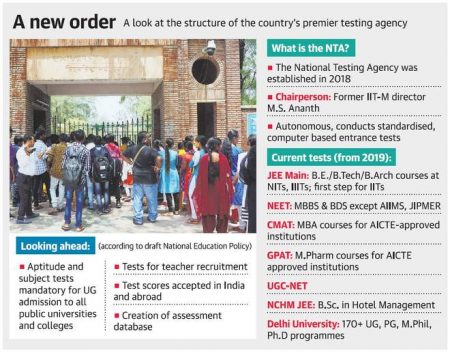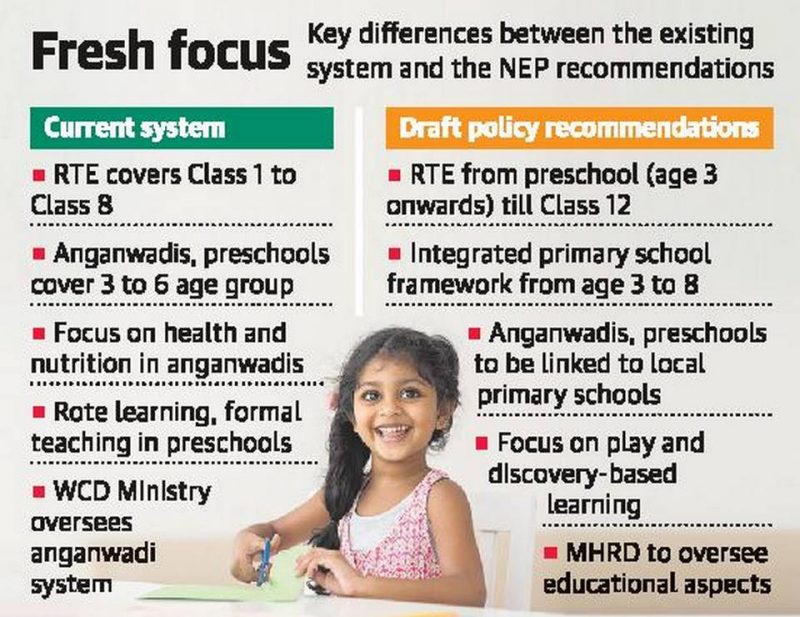Expansion of Right to Education – NEP 10/06/2019 – Posted in: Daily News
NATIONAL EDUCATION POLICY RECOMMENDATIONS
For: Preliminary & Mains
Topic covers: NEP, RTE, New recommendations, Need of the hour
News Flash
All Indian children could soon enter the formal education system at the age of three, with the draft National Education Policy projecting an expansion of the Right To Education Act to cover the three years of preschool before Class 1.
Draft National Education Policy
The draft policy wants early childhood education to be overseen and regulated by the Ministry of Human Resource Development (HRD) as part of the school system, rather than the private pre-schools and anganwadis that currently cater to the 3-to-6 years age group.
The draft Policy suggests a new integrated curricular framework for 3 to 8-year olds with a flexible system based on play, activity and discovery, and beginning exposure to three languages from age 3 onwards.
This framework would be implemented by training and strengthening anganwadi capabilities and linking them to a local primary school, co-locating anganwadis and pre-schools with primary schools, or building stand-alone pre-schools also linked to a local primary school.
Why such step needed
- Anganwadis are currently quite deficient in supplies and infrastructure for education.
- They tend to contain more children in the 2-4 year age range and fewer in the educationally critical 4-6 year age range.
- They also have few teachers trained in or specially dedicated to early childhood education.
Right to Education
- The Right of Children to Free and Compulsory Education Act or Right to Education Act (RTE), is an Act of the Parliament of India enacted on 4 August 2009.
- It describes the modalities of the importance of free and compulsory education for children between 6 and 14 in India under Article 21A of the Indian Constitution.
- The Act makes education a fundamental right of every child between the ages of 6 and 14 and specifies minimum norms in elementary schools.
- It requires all private schools to reserve 25% of seats to children.
- Kids are admitted in to private schools based on economic status or caste based reservations.
- The Right to Education of persons with disabilities until 18 years of age is laid down under a separate legislation – the Persons with Disabilities Act.
Source: The Hindu
You can follow us on LinkedIn and for more updates related to UPSC IAS Preparation, Like our Facebook Page and subscribe our Diligent IAS Youtube Channel


